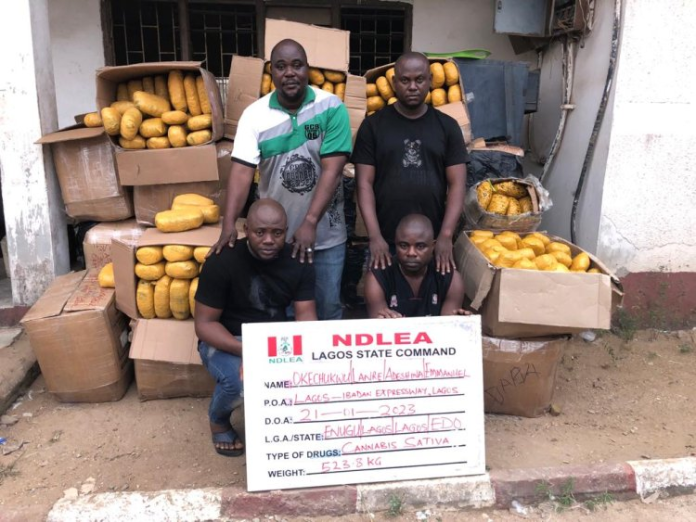IT is indisputable that some Nigerian youths are enmeshed in the consumption of drug substances that have negatively affected their lives. This has also triggered a discourse among scholars and other stakeholders in the quest to find solutions to the overwhelming effects of illicit drugs among the youth.
Among drugs that have caused devastating effects in the lives of some youths include tramadol, codeine, alcohol, cannabis popularly called Indian hemp, heroin, cocaine, amphetamine-type stimulants, sedatives, and solvents such as glue.
Simply put, drug abuse is the use of illicit drugs for purposes other than that for which they are meant or even using them in excesses as to bring harm to the user. Its prevalence is one of the vices currently associated with youths in the country and those involved are within the age bracket of 15 and 35 years.
Principally, drug abuse causes social, physical, emotional, and other human-related problems. Among the youths, it is responsible for the vices that have characterized their actions as displayed in cybercrime, rituals, armed robbery, kidnapping etc.
Like the country at large, Delta is one of the states that are battling with drug abuse among the youths, as it contends with the menace of the substance and now taking steps to restrain the youths from embracing or sustaining interest in taking drugs.
At the third quarterly meeting of the State Peace Architecture (SPA), organised by the international non-governmental organization, ‘Search for Common Ground (SFCG)’, the Permanent Secretary of the Delta State Ministry of Youth Development, Dr Ngozi Mogholu, expressed deep concern over the growing trends in drug abuse and cybercrime, adding that the state has initiated programmes aimed at addressing drug abuse and other social vices.
Finding solutions toward combating the effect of drug abuse among youths in the state is a welcome initiative, as consumption of illicit drugs reflects on the health of the abusers, causes embarrassment to their families and society, and makes them irretrievably addicted to the substance.
An investigation into the effect of drug abuse on our youths has revealed an array of problems, including serious health problems that sometimes lead to mental disorders, poor relationships with their peers, tension in their families, involvement in crimes, and absconding from school.
The menace could also be attributed to some of the vices that have caused family break ups, high school dropouts, mental disorders and outright street madness, minor crimes such as breaking and entry, stealing, obtaining under false pretense, accidents etc.
However, while the incidents of drug abuse are on the rise, parents and guardians should look inward and help the government in proffering solutions to the menace. No doubt, the incident is necessitated by a decline in the family value system as parents are more concerned with business survival, parents not playing their roles properly, the influence of peer groups, and social media influence.
Besides, the subsisting economic situation that has caused poverty, making it impossible for parents to feed their children has forced many youths into drug abuse for survival. The issue of unemployment, which made many idle and ‘devil’s workshops’, is also contributing to the high rate of drug abuse in the country.
However, the leaders cannot fold their hands and watch future leaders perish through drugs. Therefore, we condemn drug abuse under any circumstance in its entirety and call for urgent steps to tackle it.Before this period, governments at all levels have considered various steps to tackle drugs. This, however, yielded little results. But the continued abuse of these substances required that all hands must be on deck.
We support whatever plans the Delta State Ministry of Youths will initiate and enjoin well-meaning individuals to lend whatever support they can for a drug-free society.
We call on all agents of socialization, including religious bodies, the schools by setting up drug-free clubs, families, and peer groups to join in the fight against drug abuse. In the same vein, opinion leaders, community leaders, and youth groups should mobilise and create awareness that addiction to the substance is a disease and dangerous to the society.
Finally, the government should fund rehabilitation centers to treat those already addicted to free them from the destructive habit.


